The Inheritors, by William Golding
The Inheritors is a hard book to describe, and in particular it’s hard to describe without making it sound forbidding or pointless. It’s the story of a small group of neanderthals facing extinction as they encounter their nemesis, us. That’s potentially interesting, but not so much so that I’d want to read the book for that alone. What’s really interesting here is the use Golding makes here of language to take us into the minds and experiences of creatures almost, but not quite, like us.
The people are a small tribe of neanderthals. They believe they are all the people in the world, which of course is itself an indication that they must already be fairly near extinction. There aren’t many of them: Mal the old man who is their leader; Ha who is brave and will be leader when Mal dies; Lok who is the protagonist and is something of a happy-go-lucky idiot, dim even by the undemanding standards of these Neanderthals; Fa who is a fiercely intelligent (for a neanderthal) and independent minded young woman; a young mother and the “young one”, a baby which clings to the fur of her neck as they travel; Liku, a small and inquisitive child; and the “old woman” who keeps the tribe’s fire in a clay container and acts as their priestess.
The reason I just listed out all the characters is very simple. A month after reading this I can still remember each of them by name, with the exception of the young mother. I can bring them instantly to mind as people, as personalities, distinct and alive. It’s a remarkable feat of characterisation. Golding can make a semi-sentient caveman alive in a way most writers struggle to achieve for a contemporary character of a sort I might actually meet.
The people do not experience themselves as separate to the world, they do not see human and animal as fundamentally separate categories. To them the whole world is alive, their perspective essentially animist. When they move to their summer territory and find a rock they had left in a cave there Ha comments that it is a good rock, because it has stayed in place. In Biblical terms they are of the creation, not set above it or apart from it. They are pre-lapsarian.
The people were silent. Life was fulfilled, there was no need to look farther for food, tomorrow was secure and the day after that so remote that no one would bother to think of it. Life was exquisitely allayed hunger.
When the people have a memory they wish to share, or are imagining something not present or in the future, they are incredibly literal about it. “I have a picture” they declare, holding their hands on their heads to indicate where the picture is. Lok only ever has the one picture, of how he found a tree-root that looks a bit like a person and which is now Liku’s favourite (only) toy. As I said he’s not the brightest.
The end of the world, of their world, when it comes arrives suddenly and without explanation. It is literally beyond their understanding. It starts with something small, a log they use each year to cross a deep river is missing, moved, but who could have moved it? There is after all only the people. It’s a foretaste of the damage we will do. Someone, one of us, has passed by and changed the environment without any awareness of the possible harm. Now the people have to cross the freezing cold river without the log, Mal falls in and the chill he receives will be the death of him. Already we’re killing them and we don’t even know they’re there yet.
Soon the people realise that they’re not alone, there are new people, others. The others do not live within the world as the people do. They change it. In a key piece of symbolism (flagged in the excellent foreword, so I can’t claim my own insight here) the others haul their canoes up the waterfall that exists in the summer territory, going literally against the current. They control the world, impose their own rules upon it. Separate to the world as they are though they don’t instinctively understand it as the people do. What they don’t understand they fear, and what they fear they hate. They don’t understand the people.
Although the book has a classic objective narrative voice, much of it is described from the level of the neanderthals’ own understanding and perspective. That makes something of a detective of the reader, partly as sometimes you have to work out aspects of their religious and cultural life which they reference but never examine (they’re not an introspective lot), but also as the book progresses as you have to work out what’s actually happening when they themselves don’t understand it.
Suddenly Lok understood that the man was holding the stick out to him but neither he nor Lok could reach across the river. He would have laughed if it were not for the echo of the screaming in his head. The stick began to grow shorter at both ends. Then it shot out to full length again. The dead tree by Lok’s ear acquired a voice. “Clop!” His ears twitched and he turned to the tree. By his face there had grown a twig: a twig that smelt of other, and of goose, and of the bitter berries that Lok’s stomach told him he must not eat. This twig had a white bone at the end. There were hooks in the bone and sticky brown stuff hung in the crooks. His nose examined this stuff and did not like it.
It can take a moment to realise that what’s happened is the other has fired an arrow at Lok. It’s incomprehensible on two levels, firstly because Lok can’t imagine a bow and arrow or how they’d work, but secondly and just as importantly because from Lok’s perspective there is absolutely no reason for the other to wish to harm him.
The neanderthals’ world is brilliantly evoked. They live a hunter-gatherer lifestyle, largely subsisting on berries and the occasional scavenged meat left after a predator kill (they don’t hunt animals themselves, and appear to have religious objections to killing, the existence of which must mean that the idea of killing is not unfamiliar to them). They rely almost as much on smell as sight, and among the many mysteries the new people present is how they seem blind to the scent-traces they leave behind them. The people fear water because they cannot swim, value fire because while they can tend it they cannot make it. They have religion, burial practices, segregation of roles by gender, a whole world of culture and significance all of which persuades and all of which is utterly doomed.
In a way The Inheritors becomes a parable of the fall of man. The people exist in the garden, in a state of innocence. The others as Lok observes (referring to the waterfall rather than the bible, but I think Golding’s meaning is pretty clear), “are a people of the fall; nothing stands against them.” At one point Lok and Fa spy on the others, see them getting drunk (the people have no concept of brewing); fighting among themselves (the people have no concept of that either); see one man’s mate slip behind a tree to have sex with his rival. They see sin, but being themselves not fallen aren’t tainted by it, not that that will save them.
The Inheritors is an extraordinary and exceptional novel. It presents challenges, particularly as it can take a while to get into the people’s mindset and very different way of seeing the world. Early on there’s a fairly ill-judged episode where Lok falls from a cliff, barely catching on to some roots to save himself, for reasons he doesn’t understand. It’s an utterly confusing passage not just in terms of why it happened but even what exactly happens, the reader sharing Lok’s utter bafflement (I reread it three times then just gave up and moved on). Interestingly, the foreword notes that Golding’s wife advised him to change that section as it would confuse readers. He didn’t, perhaps because he wanted the reader to share Lok’s confusion, but she was right.
Once you get past those initial difficulties though the rest of the book immerses you in a perspective that is alien but always consistent. Golding creates a new world through language. It’s a dazzling example of what literature is capable of, making us see the world through different eyes and in doing so see ourselves anew.
Other reviews
The only one I’m aware of on the blogosphere is the one that first got me interested in the book, and that’s John Self’s review at The Asylum, here. He covers some aspects of the book I didn’t touch on above (there’s a lot in this one and not all the points fitted well with what I wanted most to talk about). I completely recommend and agree with his review.
There’s also a great review here by the marvellous Penelope Lively in the Guardian. The Lively review contains some fairly hefty spoilers, but since the neanderthals aren’t still with us (save perhaps traces of them in our genes) it’s pretty obvious right from the beginning how this one ends so even if you normally avoid them I don’t think spoilers are much of an issue with this book.

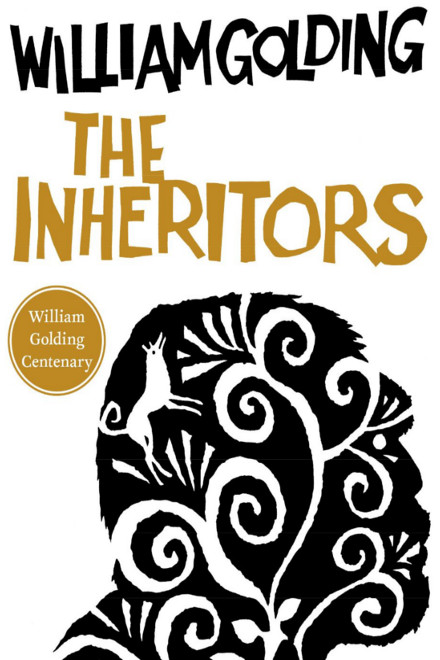
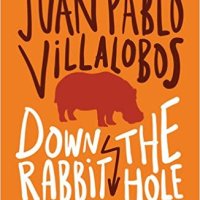
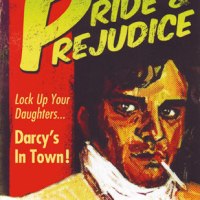
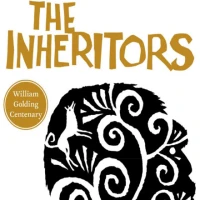


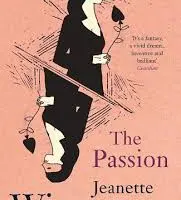







Great review. It has made me want to read even though I know some of the passages will annoy me.
Thank you for reminding me of this book – I read it when I was a child and it impressed me a lot (as much as Lord of the Flies, which I also read at about the same time). Quite an exceptional book and, as you say, the spoilers are bit obvious from the start. P.S. I did the DNA testing kit thing and discovered I have slightly above average Neanderthal elements in me…
Not my taste but coincidentally I watched a film last night based on a book by Golding: Wild Card–entertaining in a Las Vegas way.
Thanks Nick. Even if some bits do, it’s well worth a little annoyance. It does do something fairly unusual.
Marina, happy to remind you. Yes, spoilers are a bit redundant after 35,000 years. I think neanderthals in real life were a fair bit smarter and less alien than in this book, but it reflects the scholarly understanding of its time (besides, it’s fiction, it doesn’t really matter if it’s not accurate to what happened).
Guy, I don’t know that one. I’ve read Lord of the Flies of course, but otherwise this is it. Pincher Martin will probably be my next by him, but not sure when.
I loved this book. I read it long before I started blogging about books. Golding does an admirable job of inhabiting the mind of a man with rudimentary language and understanding of the world and holding to that perspective. I read it right after his The Spire which stands as one of my favourite books of all time. If you have not read it, have a look. Not everyone likes it because they don’t “like” the main character, a medieval dean of limited abilities and faith overseeing the construction of a monumental spire (inspired by Salisbury Cathedral) while slowly going mad from TB. It is a brilliantly focused limited 3rd person perspective that requires the reader to flesh out the reality through the dean’s increasingly distorted view. I wrote a bit about it in light of a serious breakdown I had last year and it can be found here: https://roughghosts.wordpress.com/2014/09/07/capturing-madness-on-the-page/
He absolutely does, I completely agree. It’s a remarkable achievement.
The Spire sounds excellent on your description. I think if one needs likable characters to like a book one misses out on a lot of great literature. I’ll check out your post, thanks.
Max – this isn’t for me, but it might suit a friend’s son. Despite being a reluctant reader, he enjoyed Golding’s The Lord of the Flies (a rare success) so The Inheritors could be a good bet. I guess it would be okay for a thirteen-year-old, nothing too inappropriate?
I’ve never given much thought to Golding beyond The Lord of the Flies, but this sounds just like my sort of thing. Thanks, Max.
Jacqui, it depends how mature he is I guess. It’s certainly very bleak, which should be ok but might on its own make it unsuitable for a less mature child. There’s violence, but not graphically described, and Lok has some sexual thoughts (but not as many as the average 13 year old, not that that’s a particularly difficult test to beat) and there is one sex scene which is watched fairly closely by Lok and Fa which some parents might take issue with but which I think most would be fine with. Generally the emphasis is on language and feeling rather than close-up camera work as it were.
Anthony, my impression is that his body of work more generally might interest you. Lord is such an obvious schools’ piece that it somewhat occludes the rest of his work.
That’s very helpful, thanks. I think he’d be okay with all of this (he seems to like bleak). I’ll pass this recommendation along. Cheers.
Pingback: Reflections on a reading year | Pechorin's Journal